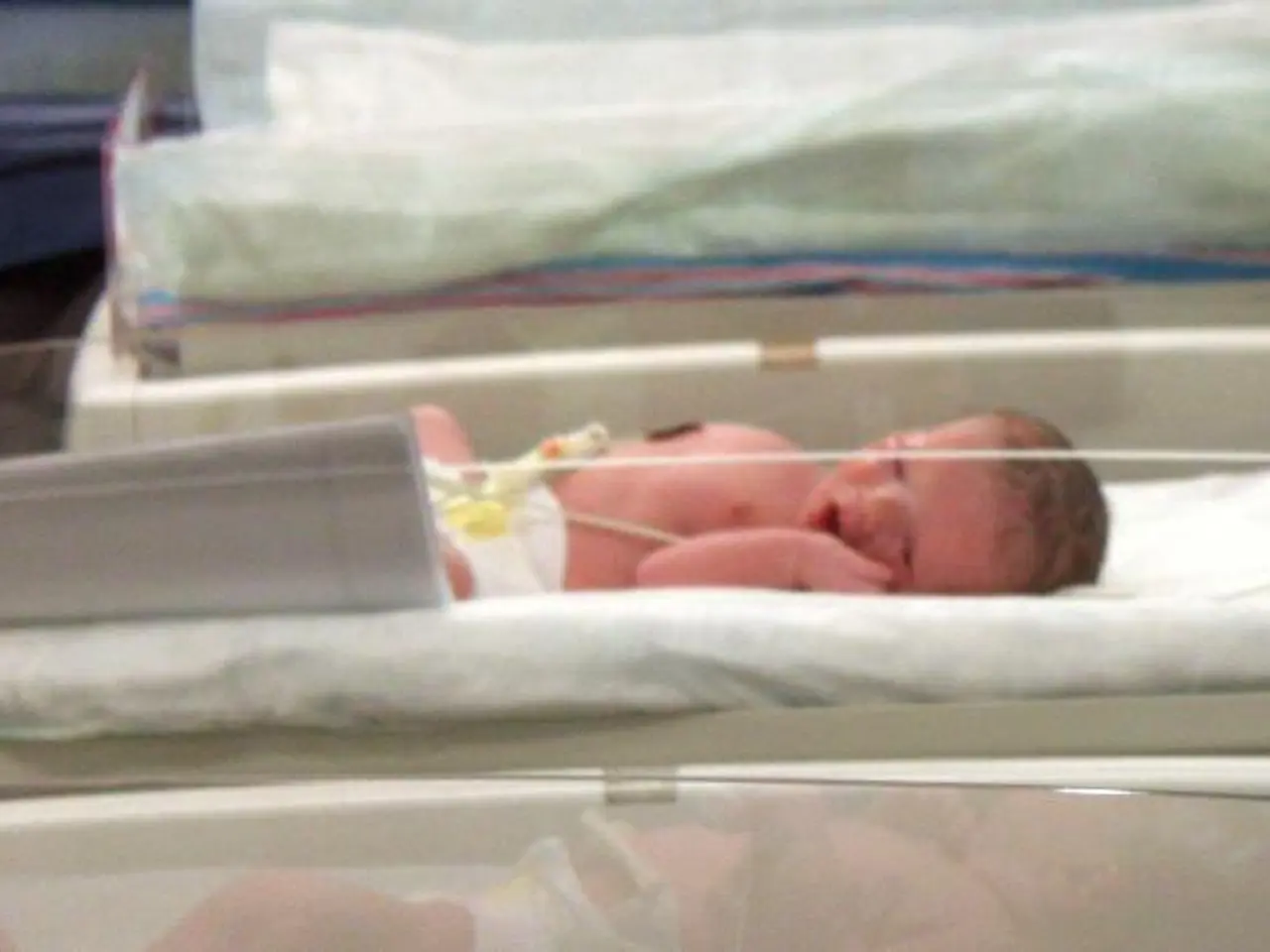Six-year peak of Enterovirus cases reported by the CDC
Two Newborns in Central Taiwan Suffer from Severe Enterovirus Infections
Two newborns in central Taiwan have been diagnosed with severe enterovirus infections, marking a six-year high in the number of such cases. According to the Centers for Disease Control (CDC), these new cases were reported last week.
Both newborns had a sepsis-like illness, including elevated liver enzymes, low blood platelets, and coagulation abnormalities. One of the newborns has been discharged from the hospital after recovering, while the other remains hospitalized after three weeks of treatment.
Enterovirus infections can be particularly dangerous for newborns, as they can contract the virus from their mothers during pregnancy or childbirth, or through direct contact with infected people after birth. Expectant mothers should inform their doctors if they develop symptoms, as advised by health authorities.
Symptoms in newborns can be mild at first, but they can progress into severe illness, so caregivers should pay special attention to their conditions and promptly seek medical attention when needed. Parents and family members should also practice good personal hygiene and avoid contact if they have symptoms, as advised by health authorities.
In addition to the newborn cases, seven people with severe enterovirus infections have died this year, including eleven newborns who had contracted echovirus 11. This is a six-year high in the number of severe cases.
Meanwhile, eight new cases of local dengue were reported last week, including six that were deemed to be of the same cluster as the cases reported in Kaohsiung's Gushan District. The source of infection for the other two local dengue cases is still being determined.
To prevent these diseases, health authorities recommend routine vaccinations where applicable, mosquito control measures to reduce exposure to dengue-transmitting mosquitoes, and maintaining hygienic practices to limit enterovirus spread.
With the start of a new semester, schools should pay special attention to cleaning campuses, dumping water in containers, and thoroughly washing them to avoid creating breeding grounds for mosquitoes and prevent dengue transmission.
Nine imported cases were also reported last week, five from Vietnam and four from Indonesia. Health authorities urge travellers to take precautions when visiting countries with high rates of enterovirus and dengue infections, and to seek medical attention promptly if symptoms develop.
In conclusion, parents and caregivers should be vigilant and seek medical attention promptly if they suspect their newborns have contracted enterovirus. Schools should also take steps to prevent the spread of dengue by maintaining clean campuses and implementing mosquito control measures. Travellers should also take precautions when visiting countries with high rates of these infections.








